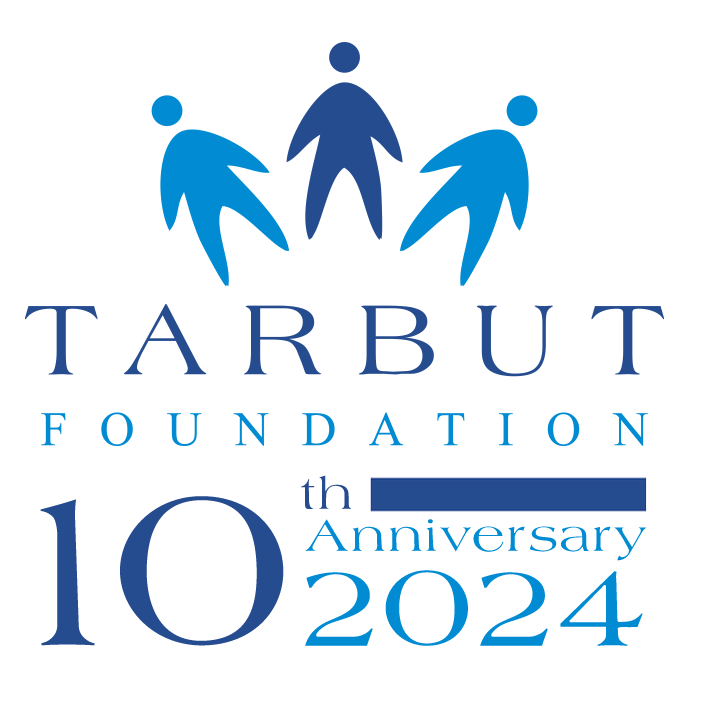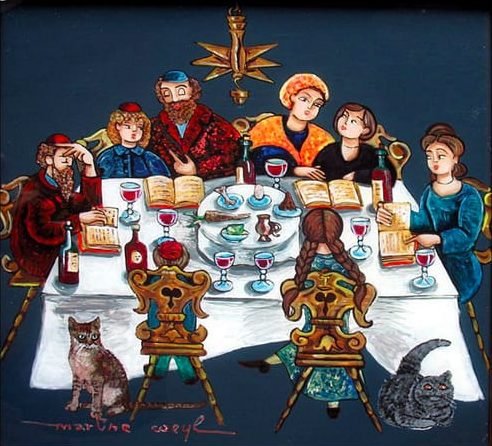EDJC 2024 - Introduction
The Evolving Tapestry of Jewish Family Life: A Look at Tradition and Diversity
The 2024 European Days of Jewish Culture (EDJC) explore the theme of "Family," delving into its rich history and diverse expressions within Judaism. We will examine the traditional concept of family, its transformation throughout the ages, and its contemporary variations across the globe.
The Traditional Family Unit
Judaism places significant emphasis on the family as a sacred unit. Traditionally, the family structure revolved around a patriarchal figure, with each member assuming specific roles and responsibilities within the household, encompassing daily life, Sabbath rituals, and holidays. This structure emerged in biblical times and continued through history, with the Shtetl life serving as a model for traditional family practices.
Modern Diversification
Today, the Jewish family landscape reflects a wider spectrum of structures and expressions. While some Orthodox communities still uphold the traditional model, a growing diversity in family composition exists globally. This includes single-parent families, LGBTQ families, and mixed marriages, alongside the ongoing presence of the two-parent family.
Maintaining Family Ties
Despite the growing diversity, Jewish tradition emphasizes the importance of maintaining strong familial bonds. This includes nurturing relationships with both parents, grandparents, and extended relatives. The different Jewish movements, encompassing Orthodox, Reform, Conservative, and Reconstructionist, further contribute to the rich tapestry of Jewish family life, adding another layer of diversity.
Family Dynamics in Israel and North America
Israeli families often demonstrate tight-knit nuclear structures, with parents maintaining close relationships with their children throughout their lives. Extended family members may reside within the same household or live nearby, contributing to childcare and fostering strong intergenerational bonds.
In contrast, North American Jewish families have undergone significant transformations. Geographic dispersion due to career opportunities, education, and diverse lifestyle choices has created a more fluid family dynamic. Reunions typically occur during major holidays or school vacations, with technological advancements like video conferencing playing a crucial role in maintaining communication throughout the year.
Stay tuned for upcoming dates, events, and programs related to the 2024 EDJC, starting in September!
Core Values
Jewish family life is enriched by core values such as Tikkun Olam (repairing the world), Tzedakah (charity), and the recognition of the infinite worth and equality of every human being. These values, along with the emphasis on thoughtfulness, kindness towards strangers, and uniqueness, are often rooted in the experiences of the Children of Israel during their forty years of desert wandering. The golden rule, "Never do to anyone else anything that you would not want someone to do to you," remains central to Jewish family life.
Jewish Marriage and Love
The Jewish marriage ceremony involves two significant rituals: the betrothal (kiddushin) and the marriage itself (ni'usin). The concept of love holds great importance, exemplified by the central commandment "Love your neighbor as yourself." This principle serves as a cornerstone of Jewish life and family relationships.
Further Exploration
For deeper exploration of Jewish family life and customs, please visit the following resources:
"JEWISH FAMILY LIFE & CUSTOMS – A Practical Guide": https://www.bethjacob.org/
"FAMILIES & JEWISH DIFFERENCES": https://www.myjewishlearning.com/
AEPJ Page for 2024 EDJC
https://jewisheritage.org/edjc/2024-family
© Copyright : Repas du Séder peinture sous verre de Martine Weyl

